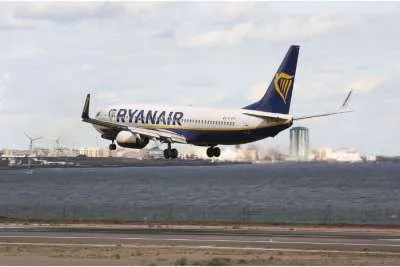Travel goes digital: Exploring the growing use of crypto in the travel industry
- 10-07-2025
- Travel
- collaborative post
- Photo Credit: Pexels
Travelling is always an exciting adventure, but managing money when moving from country to country can give you headaches. However, cryptocurrencies have been transforming how people handle their money when going abroad, making travel budgeting simpler and more convenient.
With the growing popularity of cryptocurrency, it comes as no surprise that the travel industry is having a good run with these digital assets. More people are making bookings and travel budgets using cryptocurrencies. For example, a report by the crypto travel platform Travala stated that crypto-based bookings on the platform had gone up from US $45 million in 2023 to US $80 million in 2024.
In the Canary Islands, cryptocurrencies have been embraced as a recognised form of payment. Tourists are therefore allowed to use their Bitcoin, Ethereum, Tron, etc., to make payments when they want to visit the green forests of La Gomera, the beaches of Fuerteventura or Museo Lagomar.
As the Ethereum price continues to capture global attention, tourists are taking advantage of the places where their crypto wallets can be part of the journey.
But you might be curious about the reasons behind crypto's prevalence in the world of international travel. If you are like that, then this article will be an eye-opener.
The future of travel powered by blockchain
It is interesting to note that travel companies are leading the way to crypto adoption. For instance, a study by Traders of Crypto revealed that approximately 11.54% of businesses in the sector have started integrating blockchain forms of payment.
In 2025, the number of people globally owning cryptocurrencies is more than 659 million users. You should know that these crypto users are more than just tech enthusiasts; many are frequent travellers with a thirst for innovation. That is why Triple A reports that in 2024, 14% of all digital currency transactions were spent on travel and hospitality.
People can’t bear to deal with fluctuating exchange rates, booking delays, cumbersome fees, and logistics associated with traditional payment methods anymore. And as Travala.com, one of the world’s leaders in crypto-native travel booking services, reported, 77% of all bookings in September 2024 were paid using crypto.
Crypto means low transaction fees
If you travel frequently, you know how taxing and expensive global payment fees can be. Without a borderless payment, you’d have to use credit cards, prepaid travel cards or convert your money to local currency. However, all of these come with their own drawbacks.
With currency conversions, the international exchange fees can be quite high. Imagine the cost of converting your money from your currency to the local currency and then back to your currency after a trip to the Canary Islands. By the end of the day, you end up losing a lot of money. Also, you might encounter confusion during conversion or be at a loss during the weekends when banks and currency exchanges are closed for business.
For traditional credit cards, the fee incurred may range from 1.5% to 6%, which increases travel expenses. In comparison, the transaction fee for crypto is below 1%. In this, you are not subject to any hidden costs as you only need to deal with the processing or gas fees. In fact, 65% of crypto owners prefer to use it to make their payments.
According to Jonathan Lim, travellers can skip exchange lines, pay instantly with the assets they hold and avoid foreign transaction fees.
Blockchain-based loyalty programs and customer engagement
Another area where crypto is changing the travel industry is loyalty programs. Traditional loyalty programs have been known to be complex, not transparent and have limited transferability. Most of the time, this leaves customers confused and frustrated. However, with crypto technology, the distribution of these rewards is more secure, transparent and decentralised.
A good example of this is Travala.com, which has developed its own native cryptocurrency, AVA. Travellers can use this token to book accommodations and earn rewards. Travala has been able to create more equitable, transparent and user-centric loyalty programs.
Imagine a world where travellers can easily book and pay for their accommodations, earn and redeem loyalty points and participate in immersive virtual experiences. This is what crypto is bringing to the table.
It makes sense why Travala reported that crypto users outspend travellers who use fiat currency. For example, where fiat users spend US $469 on average for booking, crypto users spend US $1,211 on average. This means that crypto users stay for longer and are more likely to make a repeat booking to a hotel.
As the number of crypto owners continues to soar, so does the use of crypto in the travel industry. So far, more people are turning to the use of these digital assets, and with the various benefits they offer, it will not be long before they become the primary mode of payment. Various crypto-based platforms are rising up in the travel industry, making it easy for people to travel more comfortably and cheaply, and this is making a huge statement in the industry.
Other articles that may interest you...
Trending
Most Read Articles
Featured Videos
TributoFest: Michael Buble promo 14.02.2026
- 30-01-2026
TEAs 2025 Highlights
- 17-11-2025































































